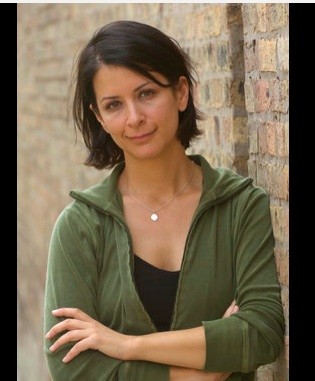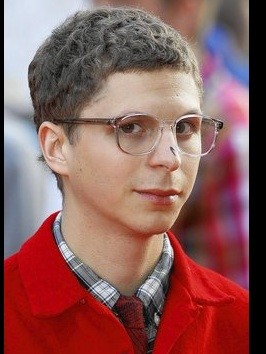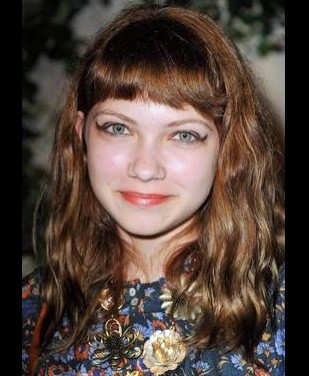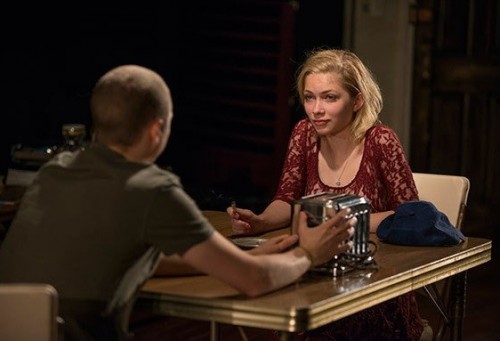This is Our Youth: Steppenwolf to Broadway
Kenneth Lonergan's Classic Play Coming to the Cort
By: Susan Hall - Jul 19, 2014
This is Our Youth
by Kenneth Lonergan
Directed by Anna D. Shapiro
Original Music by Rostam Batmanglij
Steppenwolf Theatre
Michael Cera (Warren), Kieran Culkin (Dennis), Tava Gevinson (Jessica)
Todd Rosenthal (Scenic Design), Ann Roth (Costumes), Brian MacDevitt (Lighting), Rob Milburn and Michael Bodeen (Sound)
Steppenwolf Theatre
Produced by Scott Rudin
Chicago, Illinois
July 19, 2014
Rites of passage are seldom pretty, but in Kenneth Lonergan’s “This is Our Youth,” they are brilliantly drawn in three characters.
Premiered by The New Group in 1996, and later produced by Fran and Barry Weissler off Broadway, and also on London’s West End and in Melbourne, Australia, humor, the only antidote to adolescent angst, drives sharp and apt dialogue. In the words of Warren, the young man who develops most successfully in the play, classic reversals recommended by Robert McKee are evident in every turn. (They do not feel tutored).
In Steppenwolf’s production, which heads to Broadway’s Cort Theater next month, Anna D. Shapiro has directed with impeccable pacing, using the long rectangle called a stage, at the base of two sets of fixed bleachers pitched to the long lines of the floorboards, to rollicking effect. The buzzer and front door are stage left, the telephone in the center and the bathroom for hiding and exiting, suggested stage right.
This is not an enclosed studio apartment with three young people bantering, but rather an open space in which the characters that don’t appear live on stage, but are vividly drawn, can enter the audience’s imagination.
Original music composed by Rostam Batmangijl of "Vampire Weekends" opens with a calming Mozart like piano tune accompanied by street clatter. A skylight allows a bit of light, but does not let in sound. That is left to Dennis, Warren and Jessica.
As the play opens Dennis is watching TV, preparing to become a film director the old-fashioned way. Later he will tell us that he can do anything because he is so talented. No question that he is the entrepreneur he proclaims himself to be, and a merciless one at that. He plays every opportunity for financial benefit to himself. Kieran Culkin’s strutting self-confidence is eye- and ear-catching. A perfect set up for his collapse.
Beyond the trio who have spoken lines and actually materialize on stage are the parents of each young adult. Dennis’ father is a successful painter and New Yorkers know what that means: parties in penguin suits every night, courting big bucks patrons who artists disdain, and then disdain themselves even more for courting them. A mother makes up for a father’s shortcomings by building swimming pools for inner city children. Today she might be Mrs. Stephen Schwarzman gilding her nine bathrooms in gold while her children burn. Nerdy Warren’s father is a lingerie titan, whose abuses may feel even larger to his sensitive son. The father is too busy girdling the world to listen. Warren’s sister was murdered by an older man she lived with. This sister haunts the play just as the parents hover around it.
Michael Cera gained fame in “Arrested Development.” He is clearly not arrested as he develops before our eyes. But he may well be arrested for stealing $15,000 in cash from his father. At first he counts it payment for poor child rearing.
Dennis, for all his flamboyant fuck-you stance, keeps recommending that the stolen money be immediately and then not so immediately returned. Ever the entrepreneur, Dennis recommends investing some of the money in dope to make enough profit to cover a suite for a night at the Plaza. Later he recommends the Pierre as cooler.
Jessica Goldman is played in a charming, fraught turn by Tavi Gevinson. She is in some ways strongest because she still has active parental support.
Donna Tartt’s recent bestseller “The Goldfinch” also features these characters, but the Lonergan portraits are chiseled finer and more true.
If these are the children of the 80’s and now the parents of the 21st century, what kind of kids are they producing? In the upper echelons of New York, many of these characters are working their way out of adolescence in parentts’ homes or supported by their successful parents. Drugs and alcohol continue to make the passage to adulthood even more complicated than it always has been. If our children have to smell a bit to help us release the offspring we love so much and wish to protect, the stink has not gone. And Broadway should welcome them in this taut, funny Steppenwolf production.
Producer Scott Rudin has used Steppenwolf to launch the first Broadway production of this play. It seems particularly appropriate. Steppenwolf was founded by three high school/college buddies about the age of the characters in this play. And what did they make of their incubating time? Stunning productions like “This is Our Youth.” There is hope!






